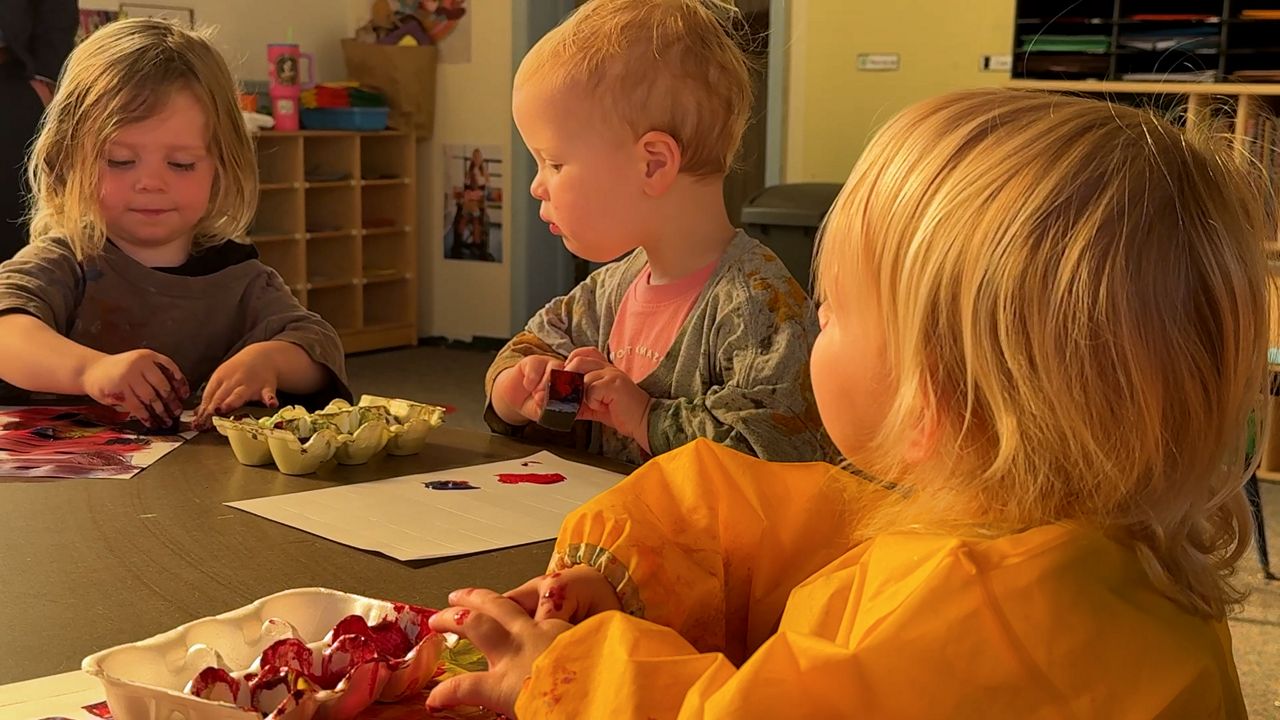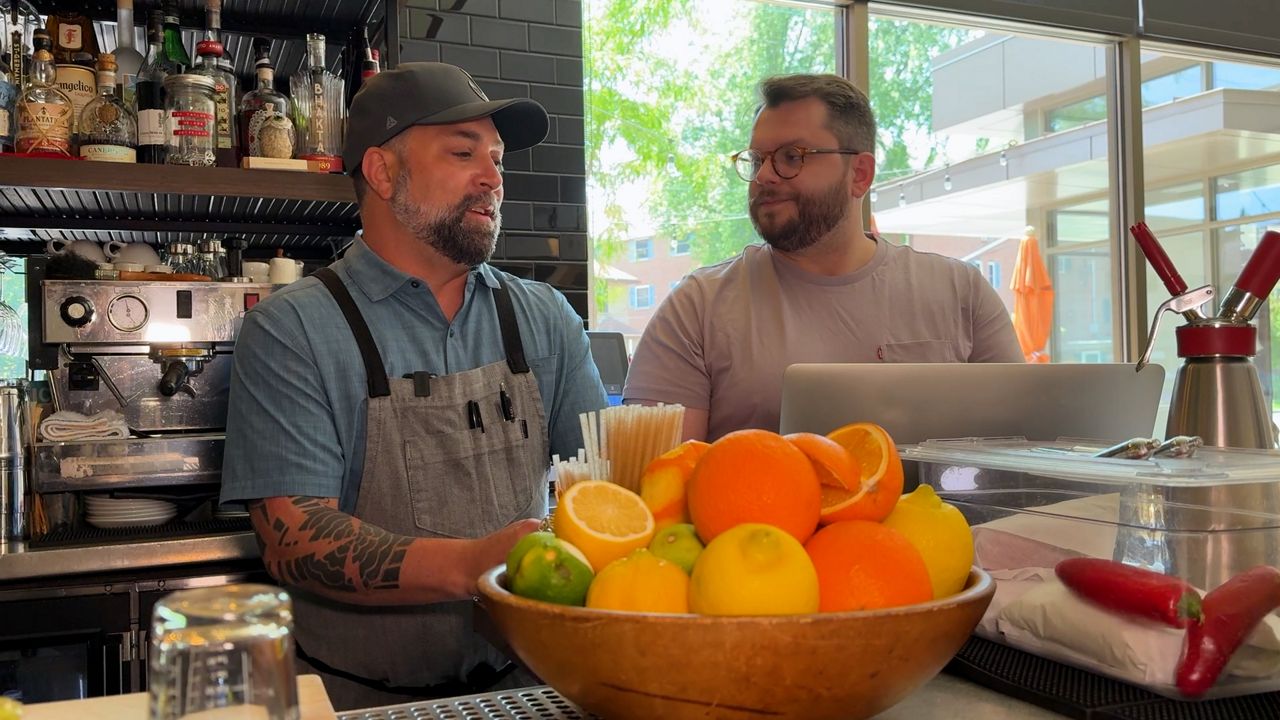MADISON, Wis. — Funding for a pandemic-era subsidy program, which has helped child care centers across the Badger State keep their doors open, will run out of money on Monday.
Without state support, the Child Care Counts program will come to an end. However, the budget isn’t finished just yet, as Democratic Gov. Tony Evers said he won’t sign a spending bill without some investment from Republicans.
A big reason why child care has been such a sticking point in this budget has to do with the workforce.
Parents said the subsidies have helped keep care close to home, while many business owners believe making those services affordable goes a long way toward avoiding staff shortages.

For the last two years, a typical weekday for Chris and Alaina Campbell has started and ended at the Arthouse Preschool in Waunakee, which they best describe as a “lifeline” to be able to work from home and care for their two daughters.
“I tried to work from home and keep my daughter at home at the same time, and I found I was only able to give half of my efforts to my job because I was giving half my efforts to my daughter and I just didn't feel like I was really fully committing to either one, and I felt guilty about both,” Alaina Campbell explained.
The Campbells already know they will see a bigger bill if the subsidy isn’t supported. While they aren’t scared about the short term, if things do get worse, one of them might have to think about leaving the workforce or even Wisconsin altogether as a family.
“It means that we might have to look somewhere else to live,” Chris Campbell added. “Where might child care be more affordable? If it's not going to be affordable in Wisconsin, then, especially working from home, we might have the ability to go somewhere else.”
In most cases, somewhere else means a shortage for Wisconsin’s workforce.

“We subsidize corporations all the time. We subsidize education all the time,” Chef Evan Dannells, who owns Cadre, a restaurant in Madison, said. “As a society, that's part of the role of government.”
Dannells referred to the restaurant and hospitality field as a “young industry” where employees are often starting families and will leave if they can’t find care.
“When people are forced to become a single-income household because they can’t find child care, they don’t have the money to go out and spend at small businesses, and so it’s kind of a one-two punch,” he explained.
It’s also a one-two punch for parents who know the worth of what child care providers do, but also have to hold their family to a budget.
“We understand that the costs need to go up, but it will impact us financially right now,” Alaina Campbell said. “Child care is the second highest expense of our monthly budget right behind our mortgage.”
For now, parents and providers alike are leaving it up to lawmakers, who have been at odds over the issue, with the hopes they will do something soon.
“This funding going into daycare is leading to higher wages for the workers, which is taxed. Daycares are also taxed,” Chris Campbell added. “Those are more dollars and parents’ money, which they can spend in the state of Wisconsin. So, it's not like this is just money that's being provided to child care facilities and going nowhere.”
A recent survey by the Institute for Research on Poverty at UW-Madison shows 90% of Wisconsinites, including those without kids, said finding affordable, high-quality child care is a problem in the state.





